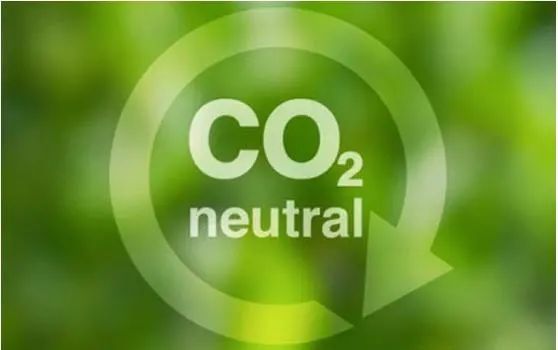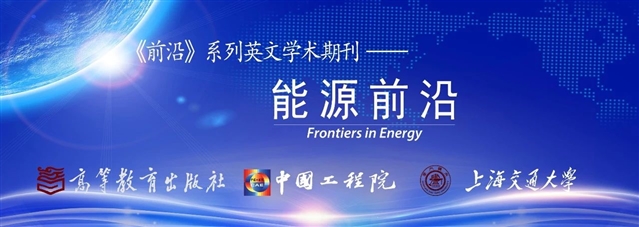|
|
|
|
|
fie | 专刊征稿:实现碳中和——创新能源和资源管理 |
|
|
论文标题:toward carbon neutrality: innovative energy and resource management (专刊征稿:实现碳中和——创新能源和资源管理)
期刊:
微信链接:
实现碳中和:创新能源和资源管理
toward carbon neutrality: innovative energy and resource management

guest editor team
prof. yong geng(耿涌), school of environmental science and engineering, shanghai jiao tong university, e-mail: ygeng@sjtu.edu.cn.
prof. raimund bleischwitz, the bartlett school of environment, energy and resources, university college london, e-mail: r.bleishcwitz@ucl.ac.uk.
prof. anthony s.f. chiu, industrial & systems engineering department;gokongwei college of engineering, de la salle university, manila, phillipine, e-mail: anthony.chiu@dlsu.edu.ph.
dr. wendong wei(魏文栋), school of international and public affairs, shanghai jiao tong university, e-mail: wendongwei@sjtu.edu.cn.
dr. han hao(郝瀚), tsinghua-rio tinto joint research center for resources energy and sustainable development, tsinghua university, e-mail: hao@tsinghua.edu.cn.
carbon neutrality refers to net-zero anthropogenic greenhouse gas (ghg) emissions, mostly co2 emissions. achieving carbon neutrality by the middle of the 21st century is critical for limiting global warming to 1.5 °c above pre-industrial levels according to the intergovernmental panel on climate change (ipcc). carbon neutrality has attracted global attentions. more than 120 countries have set their carbon neutrality targets. these countries contribute more than half of the global co2 emission in total.
currently, energy system contributes about two thirds of the global ghg emission, which indicates that efficienct energy system management is the key to achieve carbon neutrality (international energy agency, 2018). many relevant studies have been published, covering energy efficiency improvement, renewable energy, etc. several of them indicate that the lock-in effect of the existing energy system jeopardizes the 1.5 °c target (cui et al., 2019; tong et al., 2019). the international energy agency also illustrates that although it is feasible, achieving the 1.5 °c target is extremely challenging and requires all the countries to take immediate actions (international energy agency, 2021). consequently, it is critical to reform the existing energy system so that it can facilitate the implementation of carbon neutrality targets.
to date, many energy system transition pathways at regional or global levels have been proposed based on different socio-economic and technological scenarios (guan et al., 2012). however, there is a lack of consensus on these pathways. it is difficult for policymakers to choose a suitable one from very different pathways. especially, some of them lack feasibility, or even have conflicts each other. these differences or contradictions can be explained by different assumptions and treatments for key factors such as resource constraints, conflicts of different goals, and uncertainties in future technological progress (duan et al., 2021).
in order to address these concerns, more comprehensive studies should be initiated to facilitate innovative energy and resource management so that appropriate transition pathways can be identified. however, both low carbon technologies and negative emission technologies rely on a large amount of virgin materials and may be limited by sufficient material supply. for example, several rare earth elements are necessary for renewable power technologies (eg., wind power and solar power), but their supply has been restricted due to imbalanced and scarce geological concentrations (li et al., 2020). economic cost is another factor influencing carbon neutrality. achieving carbon neutrality requires large investment in energy infrastructure, technologies, etc (wei et al., 2021). most developing countries may not be able to provide sufficient financial support. meanwhile, to pursue sustainable development goals (sdgs) is another global effort. however, sevel sdgs may have conflicts with the carbon neutrality targets (xu et al., 2020). how to make the tradeoffs between carbon neutrality and sdgs deserves more academic studies. in addition, achieving carbon neutrality requires a profound transformation of economic and technological development, leading to a need of joint efforts from governments, enterprises, and individuals (geng et al., 2019; geng et al., 2013). but how to coordinate different interests, benefits and ethical considerations among different stakeholders is still a big challenge.
in order to address these issues, this special issue aims to provide a platform for researchers, policy makers, entrepreneurs, and the general public to share their outstanding research outcomes so that valuable insights can be obtained for preparing appropriate mitigation policies. authors are invited to submit their papers to present their innovative strategies, policies, methods, and behavior aspects for achieving carbon neutrality.
topic areas
the editorial team encourages submissions with a target-oriented research framework, which focuses on pathways, policies, and models for carbon neutrality at both regional and global levels. the editorial team welcomes review papers, research papers, and case studies that include but are not restricted to the following topics:
• national and regional carbon neutrality policies
• energy demand forecasting, and energy system modeling toward carbon neutrality
• resource and material constraints towards carbon neutrality
• resource efficiency improvement and circular economy in the context of carbon neutrality
• energy security in the context of high-penetration renewable energy
• impact of energy system transition toward carbon neutrality
• behavioural changes toward carbon neutrality
• investment for carbon neutrality and corresponding environmental impacts
tentative schedule
• call for papers published in july 2021.
• authors will be invited to submit their ‘peer-review ready’ documents via the scholarone system by march 31, 2022.
• peer review/paper revision process until june 30, 2022.
• submission of final version of all revised papers will be due by sep 30, 2022.
• publication of this special issue is expected to be november, 2022.
contributions
full papers are invited for potential publication in this special issue of frontiers in energy. submissions should be between 9000 and 13,000 words for comprehensive reviews, between 7000 and 8500 words for full research/theoretical papers with broad empirical studies and between 4000 and 5000 words for case studies. all should be developed based upon the editorial and formatting guidelines provided in the instructions for authors for frontiers in energy, which can be accessed from the website: .
upon receipt of the completed documents, three to six independent reviewers will be selected to provide peer reviews for each document. upon receipt and acceptance of the author’s revised or re-revised documents, all documents will be published in this special issue of frontiers in energy titled: ‘carbon neutrality’.
papers must be written in good english. authors with limitations in the command of written english are recommended to have their papers edited by a native english science editor before the first submission because poorly written pieces can compromise the decisions during the review process. similarly, they should have their final document edited by a native english science editor before they submit it to the journal.
references
cui, r.y., hultman, n., edwards, m.r., he, l., sen, a., surana, k., mcjeon, h., iyer, g., patel, p., yu, s., et al. (2019). quantifying operational lifetimes for coal power plants under the paris goals. nat commun 10, 4759.
duan, h., zhou, s., jiang, k., bertram, c., harmsen, m., kriegler, e., vuuren, d.p.v., wang, s., fujimori, s., tavoni, m., et al. (2021). assessing china’s efforts to pursue the 1.5°c warming limit. science 372, 378.
geng, y., sarkis, j., and bleischwitz, r. (2019). how to globalize the circular economy. nature 565, 153-155.
geng, y., sarkis, j., ulgiati, s., and zhang, p. (2013). measuring chinas circular economy. science 339, 1526-1527.
guan, d., liu, z., geng, y., lindner, s., and hubacek, k. (2012). the gigatonne gap in china’s carbon dioxide inventories. nat clim change 2, 672-675.
international energy agency (2018). co2 emissions from fuel combustion highlights (2018 edition).
international energy agency (2021). net zero by 2050: a roadmap for the global energy sector.
li, j., peng, k., wang, p., zhang, n., feng, k., guan, d., meng, j., wei, w., and yang, q. (2020). critical rare-earth elements mismatch global wind-power ambitions. one earth 3, 116-125.
tong, d., zhang, q., zheng, y., caldeira, k., shearer, c., hong, c., qin, y., and davis, s.j. (2019). committed emissions from existing energy infrastructure jeopardize 1.5 °c climate target. nature 572, 373-377.
wei, w., li, j., chen, b., wang, m., zhang, p., guan, d., meng, j., qian, h., cheng, y., kang, c., et al. (2021). embodied greenhouse gas emissions from building china’s large-scale power transmission infrastructure. nature sustainability.
xu, z., chau, s.n., chen, x., zhang, j., li, y., dietz, t., wang, j., winkler, j.a., fan, f., huang, b., et al. (2020). assessing progress towards sustainable development over space and time. nature 577, 74-78.

frontiers in energy (sci,2020 if 2.709))于2007年创刊,是全英文能源领域综合性学术期刊。主编是翁史烈院士、倪维斗院士、苏义脑院士和彭苏萍院士。执行主编是上海交通大学黄震院士。出版能源领域原创研究论文、综述、科学快报、专题论文等。特别关注可再生能源、未来能源、超常规能源、2030能源、微/纳米能源、能源与环境等全球能源的重大挑战问题。
涉及领域包括(不限于):先进的能源材料,储能与应用,氢能与燃料电池,co2 捕集、封存和利用,太阳能和光伏系统,生物燃料和生物能源,地热能,风能,地热能,潮汐能,核能,传热传质技术,能源与环境,建筑节能及能源经济政策等。
• 国际化的编委会队伍,海外编委约占37%
• 国际化的投审稿平台
• 高度重视学术质量,严格同行评议
• 不限文章长度,无版面费,免费语言润色
• 在线优先出版,论文快速进入sci数据库。
• 高等教育出版社出版,springer公司海外发行
在线浏览
(国内免费开放)
在线投稿
联系亚博电竞网站
刘瑞芹
rqliu@sjtu.edu.cn, (86) 21-62933795
乔晓艳
qiaoxy@hep.com.cn, (86) 10-58556482
《前沿》系列英文学术期刊
由教育部主管、高等教育出版社主办的《前沿》(frontiers)系列英文学术期刊,于2006年正式创刊,以网络版和印刷版向全球发行。系列期刊包括基础科学、生命科学、工程技术和人文社会科学四个主题,是我国覆盖学科最广泛的英文学术期刊群,其中13种被sci收录,其他也被a&hci、ei、medline或相应学科国际权威检索系统收录,具有一定的国际学术影响力。系列期刊采用在线优先出版方式,保证文章以最快速度发表。
高等教育出版社入选“中国科技期刊卓越行动计划”集群化项目。frontier系列期刊中:13种被sci收录;1种被a&hci收录;6种被ei收录;2种被medline收录;11种中国科技核心期刊;16种被cscd收录。
中国学术前沿期刊网

特别声明:本文转载仅仅是出于传播信息的需要,并不意味着代表本网站观点或证实其内容的真实性;如其他媒体、网站或个人从本网站转载使用,须保留本网站注明的“来源”,并自负yabo亚博88的版权等法律责任;作者如果不希望被转载或者联系转载稿费等事宜,请与我们接洽。